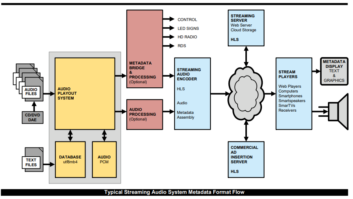A Virginia-based radio broadcaster and SoundExchange are squaring off over streaming royalties and the results of the litigation could lead to big changes in webcasting copyright law, which could affect any broadcaster that streams its content.
So says Fletcher Heald & Hildreth in its blog.
VerStandig Broadcasting believes geo-fencing technology qualifies for an exception under webcasting copyright law. Geo-fencing enables a webcaster to limit program access based on the location of the listener’s computer.
Geo-fencing works by checking the “receiving computer’s IP address, Wi-Fi and GSM access point, GPS coordinates, or some combination against a real world map of those virtual addresses,” according to the account. VerStandig claims it owes no performance royalty as long as the technology allows the company to limit the program access to computers within 150 miles of its transmitter.
SoundExchange, which distributes streaming royalty payments, ���strongly urged” VerStandig to get licenses for the streaming transmissions, according to FHH.
In response, VerStandig has now taken the fight to federal court and asked for a judgment. “It’s not clear whether [the copyright] exemption applies to anylistener within 150 miles of the station transmitter or whether it applies only if the station ensures that no listeners can attach the stream outside of 150 miles,” according to FHH, which believes the case has the potential to “upend” the world of streaming royalties.











